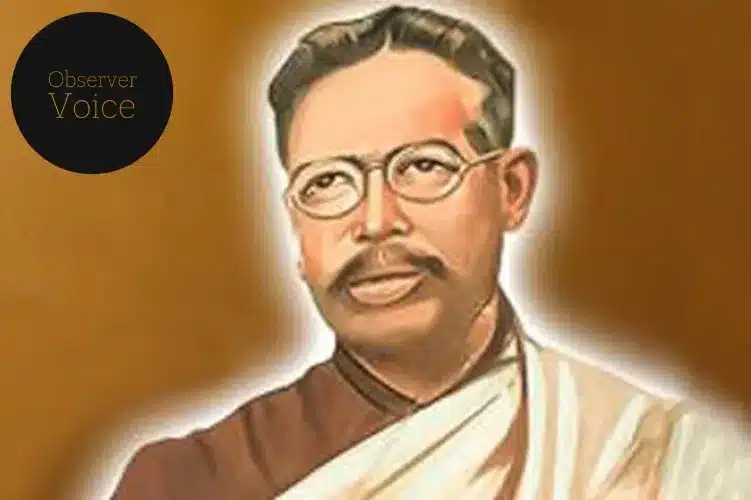Bipin Chandra Pal: A Pillar of India’s Independence Movement

Bipin Chandra Pal was an Indian writer and freedom fighter. He is known as the Father of Revolutionary Thoughts in India of India.
Life and Career
Bipin Chandra Pal was born on 7 November 1858 in the village of Poil, Habiganj. He belongs to a Hindu Bengali Kayastha family. His father was Ramchandra Pal, a zamindar and a Persian scholar. He completed his education at the Church Mission Society College. After completing his studies, he worked as a teacher and administrator in various schools and as a librarian in Calcutta.
In 1855, Indian National Congress was founded, and he was a part of INC at that time. He also attended the second and third annual sessions of INC in 1886 and 1887. In 1887, He became a major leader of the INC. In 1898, he went to England to study comparative theology but returned a year later. He was an enthusiastic and early proponent of the idea of swaraj.
Along with Lala Lajpat Rai and Bal Gangadhar Tilak he belonged to the Lal-Bal-Pal trio that was associated with revolutionary activity. Sri Aurobindo Ghosh and Pal were recognized as the chief exponents of a new national movement revolving around the ideals of Purna Swaraj, Swadeshi, boycotts, and national education.
As a journalist, Pal worked for Bengal Public Opinion, The Tribune. He started a Magazine, New Delhi, “which aimed to be, as he put it, “intensely national in spirit, breathing the deepest veneration for the spiritual, moral and intellectual achievements of Indian civilization and distinctly universal in aspiration”. In 1907, He was sent to jail for refusing to give evidence against Aurobindo in a sedition case. After he was released from jail, in 1908, he went to England and lived there for three years.
He made major contributions to India as a journalist and writer. In 1887, he started the Bengali weekly Paridarshak, worked as an editor of the Bengali Public Opinion, and had short stints with the Lahore Tribune, The Democrat, and The Independent. He wrote several books, including a Bengali biography of Queen Victoria, Indian Nationalism, Swaraj, the Present Situation, and The Basis of Social Reform.
He died on 20 May 1932 in Calcutta, India.
Read More: 7 November: Remembering C. V. Raman on his Birth Anniversary
Observer Voice is the one stop site for National, International news, Editor’s Choice, Art/culture contents, Quotes and much more. We also cover historical contents. Historical contents includes World History, Indian History, and what happened today. The website also covers Entertainment across the India and World.

